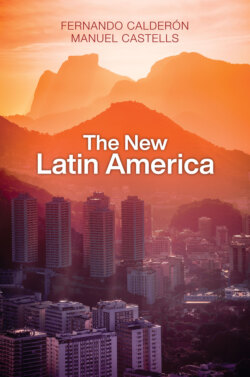Читать книгу The New Latin America - Manuel Castells - Страница 25
Notes
Оглавление1 1. The main source for the history that we recount in this section is the study edited by F. Calderón, Extractivismo informacional y territorialidades en Argentina. Un estudio comparativo sobre el litio en Olaroz, el gas y el petróleo en Vaca Muerta y la soja en Casares. A previous version was presented at Asociacion Latinoamericana de Sociologia (ALAS) XXXI Congreso. Panel: “America Latina en la era de la Informacion y Multiculturalismo,” Montevideo, 2017. This section is based on case studies on the production of lithium, soy, and unconventional hydrocarbons. These studies are: “El Extractivismo Agrícola Informacional en la Argentina: el caso de Los Grobo y las disputas territoriales socioambientales en la era de la Información,” by Juan Wahren; “Extractivismo informacional, territorio y desarrollo: el caso de YPF S.A. en Vaca Muerta,” by Ignacio Cretini; and “Minería del litio en el Salar de Olaroz,” by Debora Pragier and Juan Pablo Deluca.
2 2. For more detail, see the section “Long Life, Expandable & Sustainable Resource” at: https://salesdejujuy.com/projects/
3 3. It is worth mentioning, however, that some of these communities have managed to acquire visibility for their demands through collaboration with other actors, including the Multisectorial contra el Fracking (made up of students, the members of the Asamblea por Agua, and workers from Zanon, among others), during protests that took place in 2013 against an agreement between YPF SA and Chevron (Cretini, 2018).
4 4. On the one hand, the members of the CTA and indigenous communities report on different oil pollution sites. On the other hand, representatives of the corporation and of departments within the university contend that there is no surface water pollution in the area, and probably no groundwater pollution either (Cretini, 2018).
